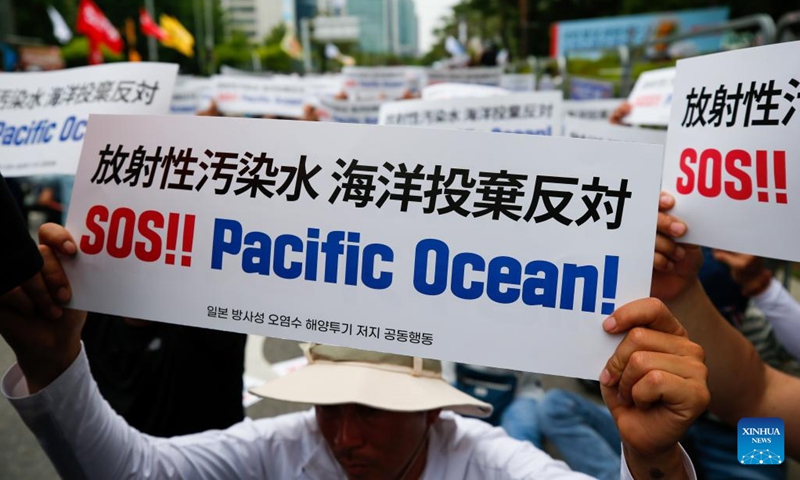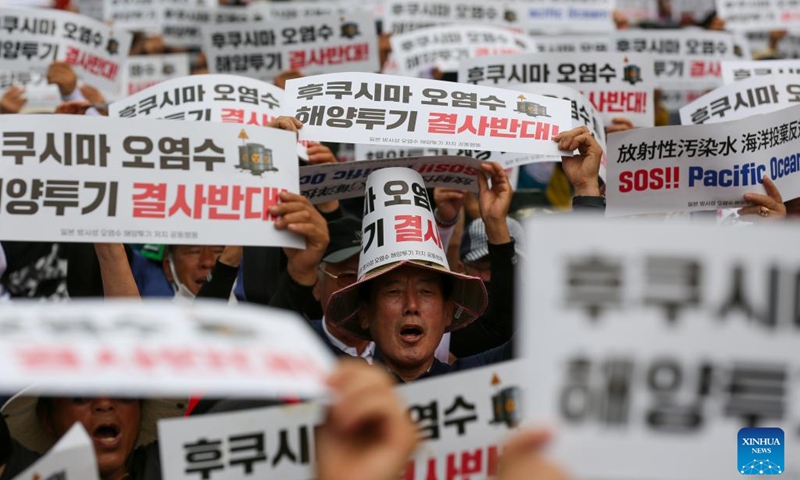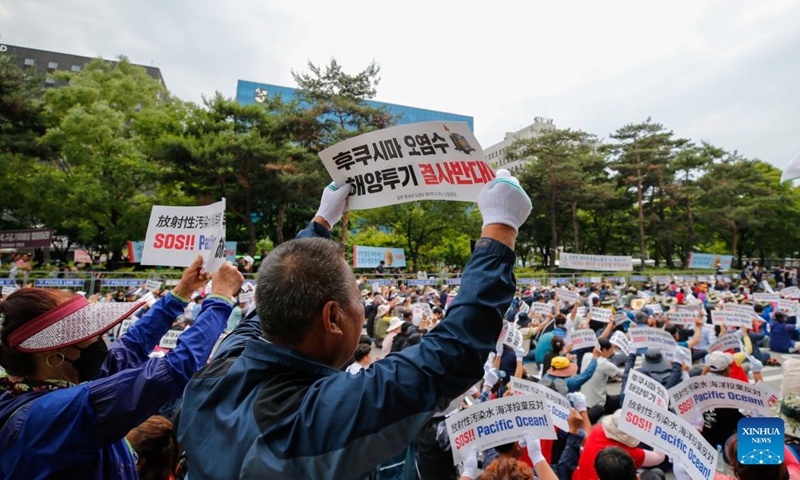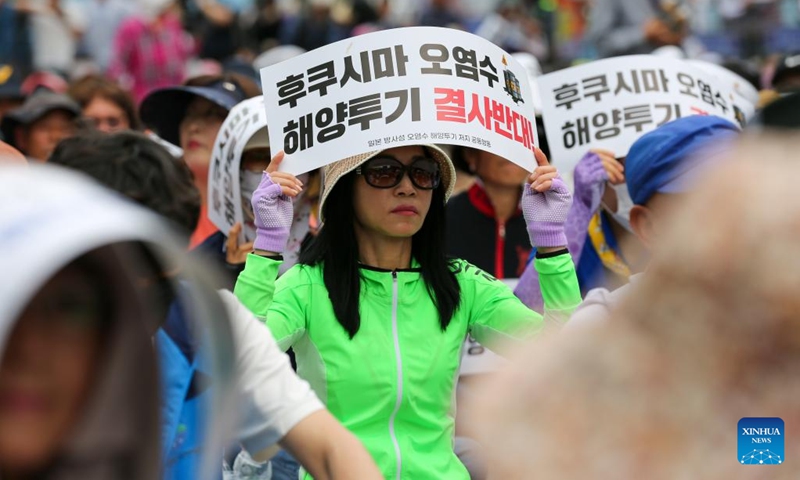
People rally to protest against Japan's planned discharge of radioactive wastewater in Seoul, South Korea, June 12, 2023. Thousands of South Korean fishermen gathered on Monday near the parliamentary building in Seoul to clamor against Japan's planned discharge of radioactive wastewater from its crippled Fukushima Daiichi nuclear power plant into the Pacific Ocean(Photo: Xinhua)

People rally to protest against Japan's planned discharge of radioactive wastewater in Seoul, South Korea, June 12, 2023. Thousands of South Korean fishermen gathered on Monday near the parliamentary building in Seoul to clamor against Japan's planned discharge of radioactive wastewater from its crippled Fukushima Daiichi nuclear power plant into the Pacific Ocean(Photo: Xinhua)

People rally to protest against Japan's planned discharge of radioactive wastewater in Seoul, South Korea, June 12, 2023. Thousands of South Korean fishermen gathered on Monday near the parliamentary building in Seoul to clamor against Japan's planned discharge of radioactive wastewater from its crippled Fukushima Daiichi nuclear power plant into the Pacific Ocean(Photo: Xinhua)

People rally to protest against Japan's planned discharge of radioactive wastewater in Seoul, South Korea, June 12, 2023. Thousands of South Korean fishermen gathered on Monday near the parliamentary building in Seoul to clamor against Japan's planned discharge of radioactive wastewater from its crippled Fukushima Daiichi nuclear power plant into the Pacific Ocean(Photo: Xinhua)
Thousands of South Korean fishermen gathered on Monday near the parliamentary building in Seoul to clamor against Japan's planned discharge of radioactive wastewater from its crippled Fukushima Daiichi nuclear power plant into the Pacific Ocean.
The fishermen held signs that read "Desperately oppose the Fukushima radioactive contaminated water discharge into the sea," and "SOS!! Pacific Ocean!"
Kim Kwang-shik, one of the fishermen who joined the protest rally, told Xinhua that although he had no professional information on the radioactive water, he was well aware of the fact that the release would be bad.
"If the Fukushima contaminated water is safe (as Japan claimed), it can be left in Japan's soil rather than be released into the ocean," Kim said.
According to organizers, about 2,000 fishermen and civic activists participated in the demonstration.
The association of the fishermen said in a statement that the Japanese government should come up with solutions, including a long-term storage on land, rather than dump the radioactive water that will destroy all life in the Pacific Ocean and all fishermen living on it.
The association urged the South Korean government to immediately file a complaint with the International Tribunal for the Law of the Sea against Japan, saying that if the contaminated water is released, it will threaten the livelihood of fishermen amid a sharp drop in demand for marine products.
According to a Research View survey of 1,000 South Korean adults conducted last month, 85.4 percent of the respondents opposed Japan's contaminated water discharge, and 72 percent said they would reduce the consumption of marine products if the wastewater is released into the ocean.
Sea salt demand here has soared for the past months on fears that Japan would push ahead with its discharge plan.
The price of 20 kg sea salt spiked 27 percent in the first week of June compared to the first week of April, according to the Ministry of Oceans and Fisheries.
Insanga, a salt producer traded in the smaller KOSDAQ market, surged by the daily price limit of 30 percent Monday, following a Japanese media report that the test operation of the contaminated water discharge facility began earlier in the day.
Both consumers and retailers rushed to stockpile salt. Major sea salt vendors stopped selling salt in early June amid a flood of delivery orders, according to local newspaper Hankyoreh.
The South Korean government attributed the salt price hike to poor weather and lower production.
